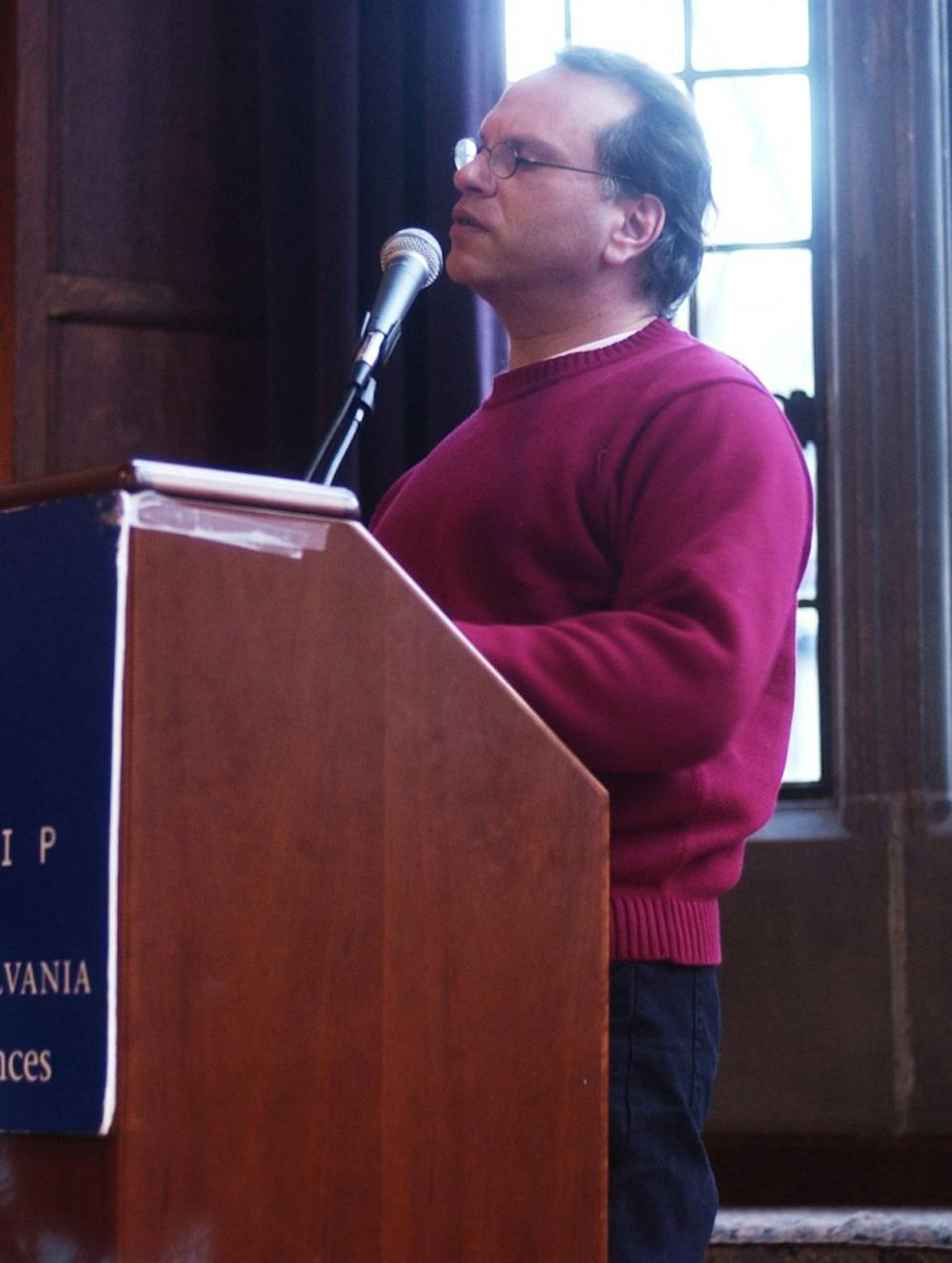
Next semester, the Kelly Writers House will welcome Buzz Bissinger, acclaimed journalist and author of Friday Night Lights.
Pulitzer Prize-winning poet Rae Armantrout and noted fiction writer T. C. Boyle will also visit the Writers House as part of the Fellows Program.
The Fellows program brings three distinguished writers, or “fellows,” to Penn’s campus every spring. The program includes a class, known as the Fellows seminar, and a public reading.
Students in the seminar study each fellow’s body of work extensively for a month, after which the fellow attends the three-hour class in person to engage in discussion about his or her work.
“The idea was to bring a very famous writer into a very cozy, homey place,” Al Filreis, the faculty director of the Kelly Writers House, said. Filreis started the program in 1999 through financial support from Penn alumnus Paul Kelly, and is the instructor for the seminar.
Related: Dutch sound artist Jaap Blonk combines sound and poetry at Kelly Writers House
Alina Grabowski, a College sophomore who is enrolled in the class next semester, is particularly excited to meet T. C. Boyle because of her interest in short stories. “I think just meeting these eminent authors in an intimate setting is going to be really cool,” she said.
According to Lily Applebaum, the coordinator of the Fellows program, the authors chosen each year are often in “vastly different genres” in order to introduce students to a diversity of literary perspectives. “To have all those voices together means a much more enriching discussion,” Applebaum said. Past fellows include Joyce Carol Oates, David Sedaris and John Ashbery.
In addition to giving students access to a renowned and diverse group of writers, the Fellows seminar is very different from most classes at Penn.
Since the writers are contemporary and therefore rarely studied deeply in academia, the class is more of an “open conversation” than a lecture. Studying contemporary writers “tends to change the pedagogical dynamic,” Filreis said. Instead of relying on the professor for insight into the material, “the students realize we are doing this together.”
However, the class treats the contemporary works seriously. “We read it as if we were reading a Shakespeare sonnet,” Filreis said of the fellows’ work.
Related: Penn grad returns to talk about collaboration in the digital age
The structure of the seminar is also unique compared to many classes. Each week, students write an online response to the works they read, and they are required to respond to each other’s writing before coming to class. Filreis’ role is “almost as a facilitator,” according to Applebaum, guiding the discussion during the three-hour seminar.
This structure is often new for the fellows as well. According to Filreis, many of the writers have become used to speaking to crowds who have little knowledge of their work. But past fellows often “walked away from [their Fellows] experience saying ‘Wow, that was different!‘”
The Daily Pennsylvanian is an independent, student-run newspaper. Please consider making a donation to support the coverage that shapes the University. Your generosity ensures a future of strong journalism at Penn.
DonatePlease note All comments are eligible for publication in The Daily Pennsylvanian.




